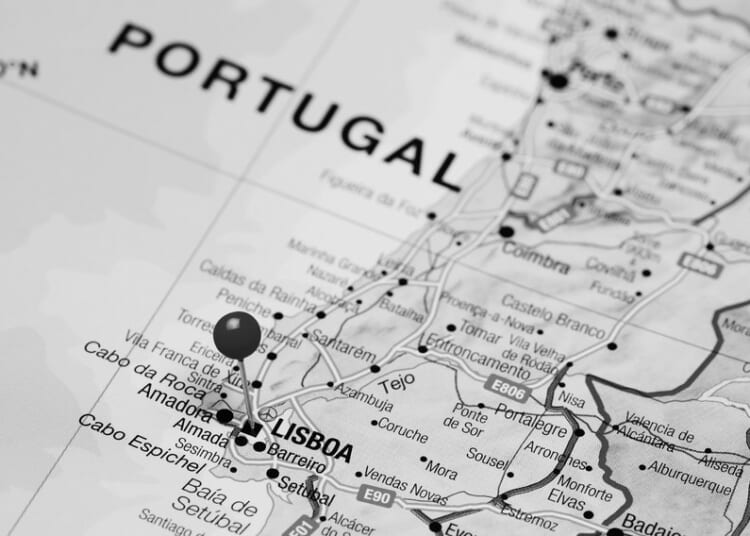AS a further example of insurgent parties disrupting the political ‘equilibrium’ that suits the globalist crony capitalist elites, Portugal has just said ‘Enough!’ to a cosy leftist consensus which has dominated its politics since the 1974 revolt against António Salazar’s dictatorial regime.
In a surge which has given Guardianistas around the continent conniptions, last Sunday, Portugal’s Chega party (their name means ‘enough’) replicated some of the successes (or near-successes) of other populist European parties such as Spain’s Vox or France’s Rassemblement National. Chega came third in the Portuguese national elections, more than doubling their share of the vote and quadrupling their representation in parliament since the last election in 2022.
However, what is unusual about the result in Portugal is that, despite some similarities, it appears to buck a number of other ‘populist politics’ trends. For instance, Chega performed well not because voter abstention was up, but because it was down, at its lowest level for 30 years. Many commentators seem certain that, much like voters for Brexit who hadn’t been into a polling booth for years, the majority of Chega’s electorate were long-term abstentionists. Moreover, the vote skews much younger, flying in the face of the simplistic ‘left-wing Millennials/right-wing Boomers’ divide which characterises other democratic political systems.
Part of the reason for this (and a possible root cause of Chega’s surge) is the utter hopelessness of life for the young in Portugal. One might even accuse the government of a ‘great replacement’, swapping talented young people born in Portugal with ‘digital nomads’ from abroad. Bloomberg reported last year that 40 per cent of graduates leave the country to work, unable to find jobs or, crucially, anywhere affordable to live. Why? Because of the AirBNB boom caused by making Portugal attractive to non-Portuguese who can work remotely and enjoy the sun and sea that old Lusitania has to offer. Overall, the Portuguese diaspora is estimated at 25 per cent, unsurprising in a country where the average wage is just 1,000 Euros (£850) a month.
In a report produced by France24, one of the news broadcasters most panicked about the ‘rise of the Far Right’, two young women talk about their struggle to move out of their homes despite having reasonably decent salaries. Listening to them, it is clear their hopes of life getting better are being crushed by self-serving politicians at all levels. One of them closes with her simple, repeated instruction to the government: ‘Just fix it!’ It would seem that Chega may be the only hope of a ‘fix’ left for a lot of young men and women.
Though Chega came third with 18 per cent of the national vote on Sunday, significantly in the Algarve, the southern area familiar to tourists, they were the outright winner with 27 per cent of the vote. This area has not only been overrun by immigration (the topic that it is taboo for all local European Union loyalists to talk about, provoking cries of ‘racism’) but also had its largely tourism-based economy crushed by the repeated lockdowns between 2020 and 2022. It still has not fully recovered, with locals living like second-class citizens in their own country.
Of course, bien pensant academics attribute this populist party’s success to a resurgence of nostalgia for Portugal’s authoritarian past under António Salazar. The irony is that, though such studies by fat-bottomed government-funded researchers briefly mention the attempts of elected politicians to get some kickbacks from European Union-funded ‘green’ projects, when they’re not hiding cash in wine crates, the ‘real’ problem is that the Portuguese just love dictators too much. Suddenly. After 50 years.
In fact, Chega seem primarily to be the political response to the utter venality of an elite whose hands have been greased for years by EU handouts. Unbelievably, the cloth-eared Socialist Party, whose Prime Minister resigned in December while under investigation for corruption, triggering the election, appointed as its new leader the former Infrastructure Minister, a man who himself resigned in 2022 during another corruption scandal. With Chega’s slogan ‘Portugal needs a clean out’ promising to ‘end corruption and nepotism’, many electors were no doubt tempted by these Trump-like pledges to drain the swamp.
Like Trump, though, it’s clear that Chega leader André Ventura is no great saviour riding in to save the nation. Chasing votes from the majority of Portuguese in favour of government handouts, he has ditched Chega’s more economically liberal programme of drastically reducing the role of the state, instead going for low-hanging fruit such as promising a tripling of the state pension or providing state-backed first-time mortgages. He also keeps the lid on any chatter about leaving the generous EU and its bailouts. Similarly to their cousins in other countries, Chega have focused on uncontrolled immigration (with a spotlight, interestingly, on migrants from Pakistan), increasing funding to the police, and pulling the plug on woke projects to ‘repatriate’ ‘stolen’ artworks from former colonies. And above all, rooting out corruption.
Portugal now has a hung parliament, the two technocratic ‘establishment’ parties (the Socialists and the ‘centre-right’ Social Democrats) having no overall majority, meaning Chega will have a potentially powerful ability to veto legislation and upset the smooth running of government. Ventura has upped the ante, after being dismissed by the Prime Minister-in-waiting as ‘racist and xenophobic’, by stating: ‘If you don’t negotiate with us, we won’t support your budget.’ Playing the politics game might lend more power to Chega as a disruptive, game-changing force. But the question for Portugal now is simply: will it be enough?

